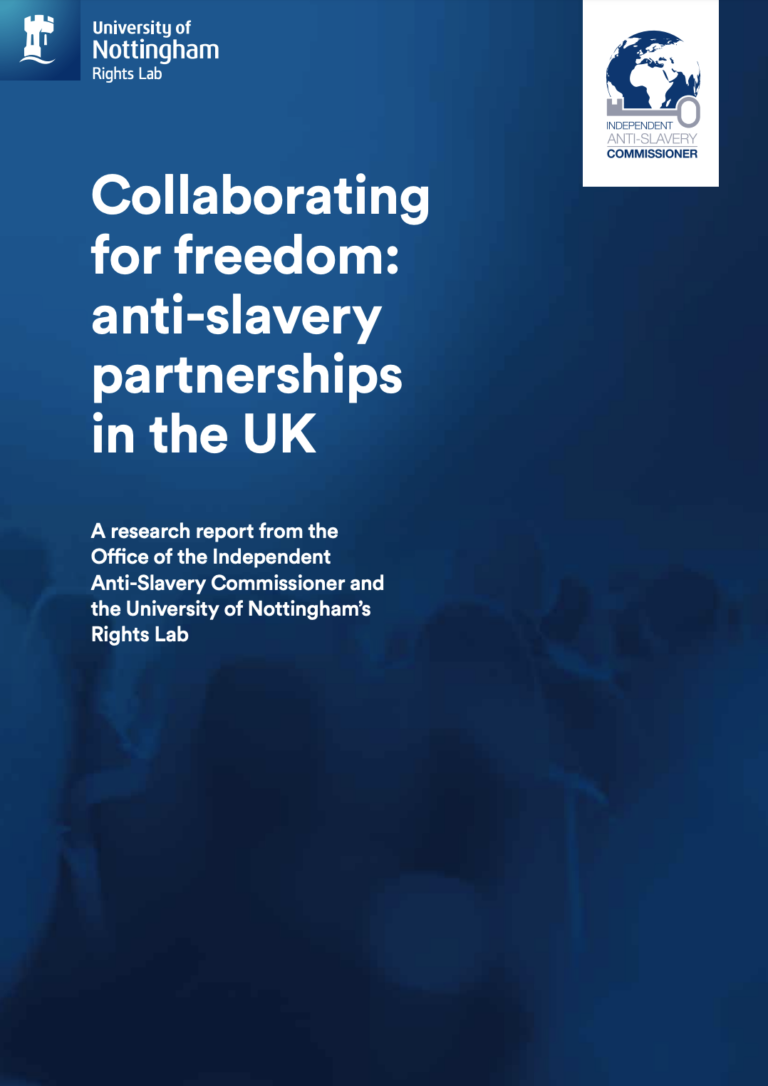2017 UK Annual Report on Modern Slavery
This Annual Report focuses on the steps the UK Government, the Scottish Government and the Northern Ireland Executive have taken in 2017 to combat modern slavery, including human trafficking.
Multi-agency partnership working is often highlighted as an essential aspect of the UK public policy response to modern slavery. The Home Office’s (2014) Modern Slavery Strategy emphasises that effective partnership work is ‘crucial’ and must include ‘greater awareness among frontline professionals, coordinated international activity, close working with the private sector and support from communities, including civil society and faith groups’.
However, despite the priority placed on partnerships by the UK Government, there has been little guidance to date on the form they should take, or how they might best identify and deliver shared goals and responsibilities. In the majority of cases there has also been no dedicated funding to facilitate partnership activity, and no means of monitoring what activity is in place. This means that until now, relatively little has been understood about the different partnership responses to Modern Slavery that are emerging across the UK.
This research report is part of a collaborative project between the Office of the Independent AntiSlavery Commissioner (IASC) and the University of Nottingham. The aim of the work was to map multi-agency anti-slavery partnerships across the UK, identify potential examples of ‘good practice’ among them and understand the conditions that helped to facilitate success.

This Annual Report focuses on the steps the UK Government, the Scottish Government and the Northern Ireland Executive have taken in 2017 to combat modern slavery, including human trafficking.
The COVID-19 outbreak has been affecting Asia since January 2020. It is now a global pandemic, with over 4.5 million cases detected in 168 countries and over 300,000 deaths globally as of 15 May 2020. Much of the world has implemented severe quarant...Read More
The research looks at how existing systems respond to the particular needs and vulnerabilities of presumed or identified child victims, or children at risk of trafficking and exploitation, such as unaccompanied children. This comparative report help...Read More
Homelessness organisations and anti-slavery organisations have both been aware of links between modern slavery and homelessness, yet there has been little research into how these issues overlap and impact on one another. An initial scoping exercise ...Read More
Over the past decade, businesses have in many ways improved their efforts to pro- mote human rights through sustainability measures. Simultaneously, political interest in strengthening corporate social responsibility has increased along with un...Read More